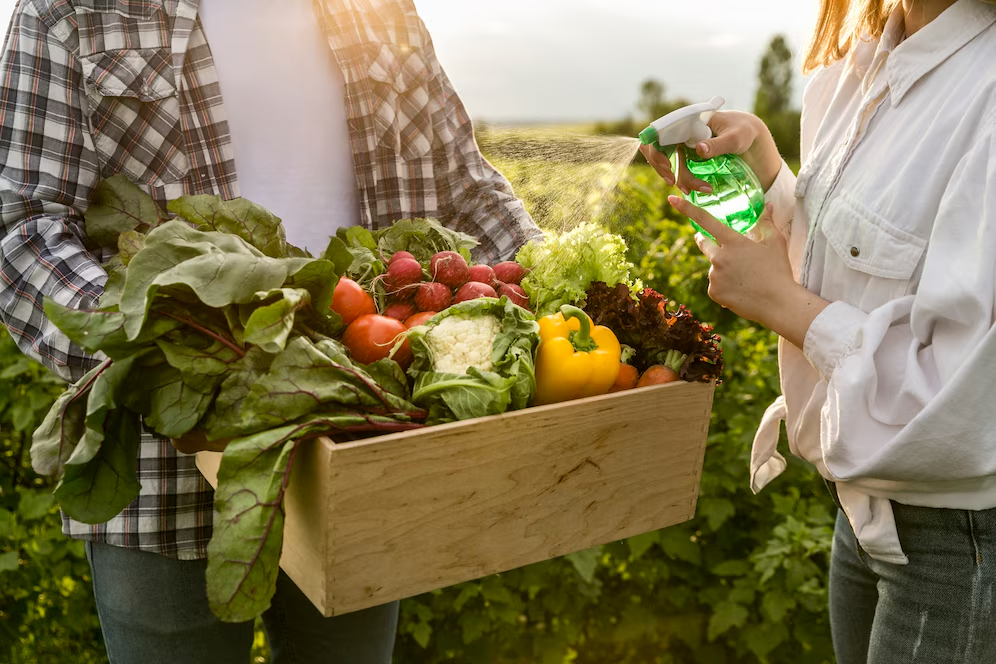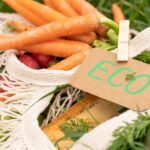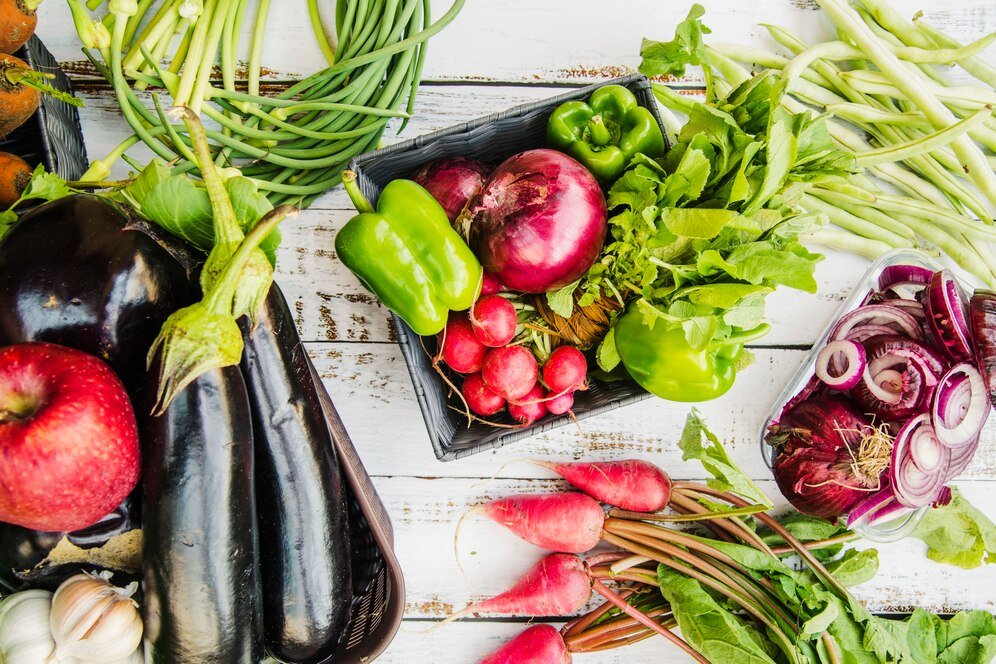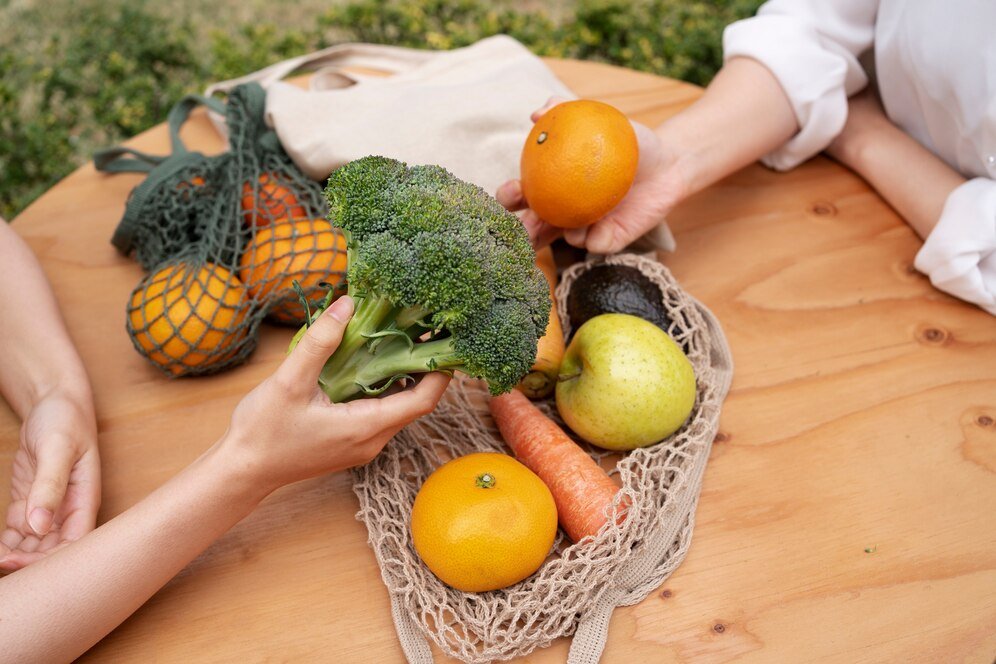In today’s world, the debate between organic and conventional food is more prominent than ever. With growing concerns over health, sustainability, and the environment, more and more consumers are questioning what’s on their plates and whether it’s worth choosing organic. So, what’s the real difference between organic and conventional foods, and how can you make more informed choices?
Let’s take a deeper look at both types of food to help you understand what you’re eating and why it matters.
What Does “Organic” Really Mean?
The term “organic” refers to the way agricultural products are grown and processed. Organic food is produced without the use of synthetic pesticides, chemical fertilizers, genetically modified organisms (GMOs), or irradiation. Organic farming practices focus on maintaining soil health, promoting biodiversity, and using sustainable methods to grow food.
For food to be certified organic, it must meet specific standards set by regulatory organizations, such as the USDA Organic certification in the United States or the EU Organic certification in Europe. These certifications ensure that the food has been grown, handled, and processed in compliance with strict organic farming guidelines.
What Is Conventional Farming?
Conventional farming, on the other hand, refers to the more traditional methods of growing food, which often include the use of synthetic chemicals, pesticides, and fertilizers. Conventional farms typically rely on mass production techniques, using machinery to plant, maintain, and harvest crops. Additionally, genetically modified organisms (GMOs) are often used in conventional farming to enhance yields and increase resistance to pests and diseases.
While conventional farming is more widespread and often less expensive, it has been associated with concerns about environmental impact, soil degradation, and the long-term health effects of consuming chemical-laden food.
Health Considerations: Organic vs. Conventional
One of the most significant reasons people choose organic food is the belief that it’s healthier for them and their families. Studies have shown that organic produce contains fewer pesticide residues compared to conventionally grown food. Although both organic and conventional produce are generally safe to eat, the concern is that long-term exposure to pesticide residues could have potential health risks, particularly for young children and pregnant women.
Furthermore, some research suggests that organic food may have higher levels of certain nutrients, including antioxidants and omega-3 fatty acids, especially in organic meat and dairy products. However, the nutritional differences between organic and conventional foods are still a subject of ongoing research and debate.
What is clear is that organic food typically contains fewer additives, preservatives, and artificial colorings, which can benefit overall health and wellness.
Environmental Impact: Organic vs. Conventional
Organic farming practices tend to have a smaller environmental footprint compared to conventional farming. Organic farmers focus on building healthy soil through crop rotation, composting, and reducing soil erosion. These methods help maintain the land’s fertility without depleting it or harming the ecosystem.
In contrast, conventional farming often relies on monocropping — the practice of growing large quantities of one type of crop — which can lead to soil depletion and increased pesticide and chemical use. Additionally, the overuse of chemical fertilizers in conventional farming can contribute to water pollution and harm local ecosystems.
When you choose organic food, you’re not only making a healthier choice for yourself, but you’re also supporting farming practices that are more sustainable for the planet.
Cost Considerations: Is Organic Worth the Price?
Organic food is often more expensive than conventionally grown food, and this price difference can be a barrier for many consumers. The higher price is due to factors like smaller yields, labor-intensive farming practices, and the costs associated with certification and inspection.
While organic food might be out of reach for some people, it’s important to note that buying organic doesn’t have to mean buying everything organic. If you’re on a budget, focus on purchasing organic versions of the most pesticide-prone foods, such as:
-
Apples
-
Strawberries
-
Spinach
-
Kale
-
Potatoes
-
Tomatoes
For other items with lower pesticide residues, conventional versions may be acceptable, depending on your personal preferences and budget.
Taste: Does Organic Taste Better?
Many consumers claim that organic produce tastes better than conventional food. While taste is subjective and depends on factors like ripeness and freshness, some people find that organic produce has a more robust, natural flavor, especially in fruits and vegetables. This could be due to the healthier soil and natural farming practices that promote better taste.
That being said, taste is also influenced by factors like the variety of the product, its growing conditions, and how it was handled after harvest. So, while organic food may taste different to some people, others may not notice a significant difference.
How to Make Informed Choices
Making the right choice between organic and conventional food comes down to personal priorities. If you’re concerned about the potential health and environmental impacts of pesticides and chemicals, choosing organic may be worth the investment. However, if budget is a concern, you can still enjoy fresh, healthy produce by shopping smart and prioritizing certain organic items.
It’s also important to remember that any fruits and vegetables — whether organic or conventional — are better for you than processed foods. Eating a diet rich in whole, plant-based foods is key to maintaining good health, regardless of whether they’re organic.
Conclusion: Organic vs. Conventional – What’s Best for You?
The decision to choose organic or conventional food depends on your health goals, budget, and values. Both options have their advantages, but organic food tends to be the healthier, more sustainable choice when it comes to farming practices and reducing exposure to pesticides. If you can afford it, making organic choices for the most pesticide-heavy foods can be a simple way to protect your health and the environment.
Ultimately, the most important thing is to eat a variety of whole, fresh foods, whether organic or conventional. Eating more fruits, vegetables, and whole grains, and cutting back on processed foods, is always a step toward a healthier lifestyle.









